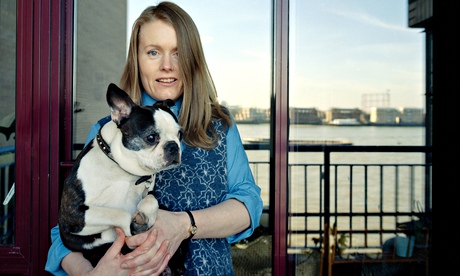
I loved this book. I hated this book. I was amazed by it. I was bored by it. I thought it beautiful, skilful, profound. I thought it clumsy, callow, silly. I admired its elliptical brilliance and its deep human discerning. I despaired of its Carry-On-Up-the-Khyber bum jokes and all the stewing self-indulgence. Fans of Nicola Barker will smile. Professional admirers will nod slowly. Detractors will grimace and shake their heads. I have never read anything like it.
In short, In the Approaches is a romantic comedy centring on two protagonists, Miss Carla Hahn and Mr Franklin D Huff, set in the coastal village of Pett Level "in the approaches of Rye Bay and Hastings" in 1984. Miss Hahn is the ex-nanny of Orla Cleary, a half-Aboriginal thalidomide child, "a tiny-armed girl visionary", who may or may not have been a saint and/or an IRA informer depending on whether or not we believe her father, Bran, a mural artist, to have been involved in the Troubles. Ostensibly, Mr Huff, an ex-journalist of sorts, is here to investigate what went down 14 years previously when the Cleary family themselves were lying low in Level. At that time, Kim, Huff's wife, had an affair with Bran and made "a picture diary" – hence Huff's return to uncover the truth.
But reading Nicola Barker for plot would be perverse. Rather, it is her writing that so amazes, enthrals and exasperates. There's a sublime, hysterical incontinence to her style, a super abundance of word and thought, with commentary on both, and then commentary on the commentary – all evinced in a ferocious invective of ellipses, parentheses, exclamation marks, italics, interrogatives and capitals.
Barker is some kind of genius and is now 10 novels in – so of course she is well aware of this, and remarks upon it with a wry wit. "Exhausting. [Thinks Mr Huff.] This is exhausting. I can't keep on thinking in capital letters. Aside from any other consideration, it's just way too gauche. Too adolescent." Or later – also from Mr Huff but hinting, I suspect, at Barker's wider work: "Please! Not another giant serving of completely hysterical pseudo-mystical mumbo-jumbo… I just can't bear it!" Or, in a cousin passage, a secondary character, Clifford Bickerton turns on "the Author" – "the mean cow" – directly inveighing against Barker's (as he sees it) ill-conceived and hyperbolic approach to fiction: "She killed someone in another novel (forget the name of it, offhand) with a frozen, miniature butter pat and then she won a prize. A prize! A big money prize! What were they thinking?!"
Meanwhile, the characterisation is rich and powerful – all this turbulent interiority rendered with great skilland such zoom. At times, the dialogue comes like snatches of air taken between deep dives into the characters' consciousness. And yet, conversely, all the character voices are in the same key – copious, manic – so that occasionally the tone bleeds between them and the illusion of their distinctiveness disappears. Overall, it feels like there's a wild chaos at work in the writing: half the time it is irresistibly kinetic and spellbinding; and half the time it is kitschy and teenage – as with the parrot chapters, where it feels like the writer is having such fun on her own that the reader is all but forgotten.
Thematically, the book is textured, playfully philosophical and increasingly moving. I read the last 150 pages at a sitting with my heart and mind stirred by the unfolding meditation on faith, suffering, guilt and the relativity of truth. And yet it's also funny. Best and most beautiful of all, though, is when Barker is dealing with her central thesis: for Miss Carla Hahn has long been "stuck in the approaches" and yet this is where life is at its most luminous "because majesty shines most brightly through… through frailty, I suppose. Through failure. Through weakness."

